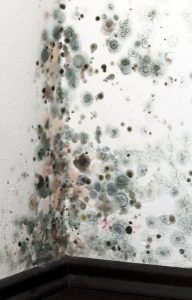 You don’t want mold anywhere in your house. Mold looks awful, creates terrible odors, destroys building material like drywall, and can release toxic spores. (Black mold, the most common type of mold due to water damage, is the most dangerous.) Unfortunately, a number of common plumbing issues can lead to mold. The faster you call for plumbers in Burlington, VT to fix a problem, the less likely you’ll have mold as a consequence. And if it’s mold that causes you to notice the problem in the first place, you need plumbers there on the double.
You don’t want mold anywhere in your house. Mold looks awful, creates terrible odors, destroys building material like drywall, and can release toxic spores. (Black mold, the most common type of mold due to water damage, is the most dangerous.) Unfortunately, a number of common plumbing issues can lead to mold. The faster you call for plumbers in Burlington, VT to fix a problem, the less likely you’ll have mold as a consequence. And if it’s mold that causes you to notice the problem in the first place, you need plumbers there on the double.
What Goes Wrong With Plumbing That Can Create Mold?
Water moisture anywhere encourages mold growth. That covers a wide range of plumbing mishaps. Below are the most common ones we see.
- Under the sink leaks: If you use the cabinet area below bathroom and kitchen sinks for storage, it’s more difficult to know when there are leaks from above. Moisture can start to pool and you won’t notice it. Water can leak from the drainpipe, the garbage disposal, from loose areas around the sink mount, or from the feed line. If you detect a musty smell from the cabinet or see any indication of leaking, clear out the space to see if you’ve got leaks. Call a plumber to fix the problem.
- Hidden pipe leaks: This is the most insidious source of mold because it’s difficult to notice at first. The tiniest pinhole leak in a copper pipe is enough to create mold and mildew that will bore right into drywall. We recommend scheduling leak testing with our team every few years to catch these problems early. If you notice staining on the walls or ceiling, or you can’t account for a rise in your water bills, we also advise you call us.
- Moisture in the basement: The reason our homes have basements is because its necessary to put the plumbing down low enough in the ground where it won’t freeze in winter. This means there are often many pipes in the basement, as well as sump pumps and the water heater. Because the basement is dark, warm, and often humid, it’s a prime place for mold growth. If you’ve got water leaking anywhere in the basement, mold will come along eventually.
- Actual flood damage: Water damage from flooding—no matter if it’s due to a storm or busted pipe—isn’t something you can just mop up. Water gets down into building material, where it becomes difficult to remove. Mold is a huge danger from water damage, and if it sets in, it’ll require expensive mold remediation to remove. Never allow for standing water—always call a plumber for help.
- Slow drains: Here’s something you also shouldn’t tolerate—slow drains. The longer it takes for water to drain out of a bathtub or shower, the more moisture in the bathroom. No matter how well you dry off the shower after use, that standing water will create problems with mold and mildew. If you can’t clear the material in the drain with a plunger, call our plumbers for drain cleaning.
Red Rock Mechanical, LLC serves Northwest Vermont and Northeast New York. Call us for 24-hour emergency service when you have a big plumbing problem.







